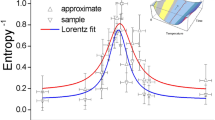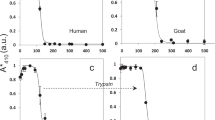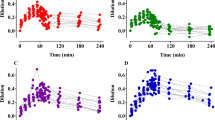Abstract
EXCHANGES of water between blood and tissues are generally believed, since Starling's work, to be regulated by the equilibrium of two forces, namely, hydrostatic capillary pressure which drives water out into the tissues, and blood colloid osmotic pressure which draws it into the vessels. Based on clinical and experimental investigations, I pointed out several years ago that this assumption leaves out of consideration the role of the tissues, which are, from a physico-chemical point of view, a much more complicated system than blood. In my opinion, the hydration of tissues determines the colloid osmotic pressure of blood, this pressure being but an intermediary between the different tissues1.
This is a preview of subscription content, access via your institution
Access options
Subscribe to this journal
Receive 51 print issues and online access
$199.00 per year
only $3.90 per issue
Buy this article
- Purchase on Springer Link
- Instant access to full article PDF
Prices may be subject to local taxes which are calculated during checkout
Similar content being viewed by others
References
Ergeb. Physiol., 34, 18; 1932.
” Anatomy and Physiology of Capillaries”. 2nd ed., p. 305. New Haven, 1929.
Author information
Authors and Affiliations
Rights and permissions
About this article
Cite this article
MEYER, P. Colloid Osmotic Pressure of the Body Fluids of Marine Animals. Nature 136, 757–758 (1935). https://doi.org/10.1038/136757b0
Published:
Issue Date:
DOI: https://doi.org/10.1038/136757b0
This article is cited by
Comments
By submitting a comment you agree to abide by our Terms and Community Guidelines. If you find something abusive or that does not comply with our terms or guidelines please flag it as inappropriate.



